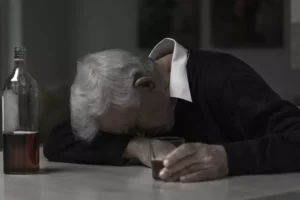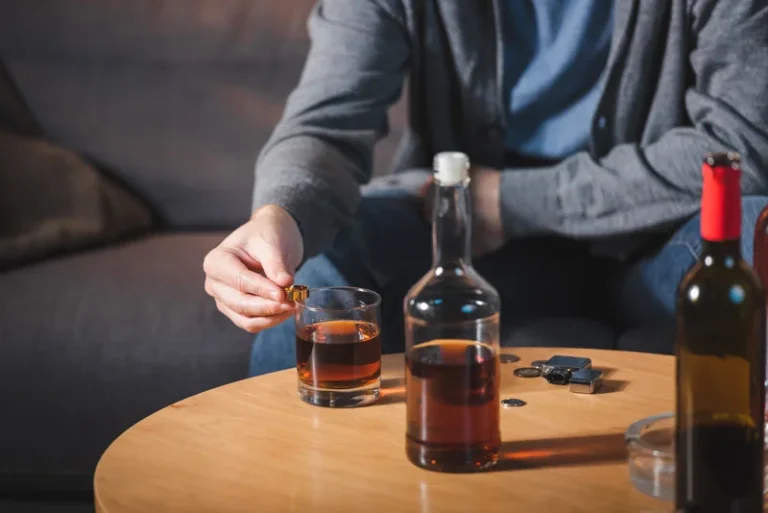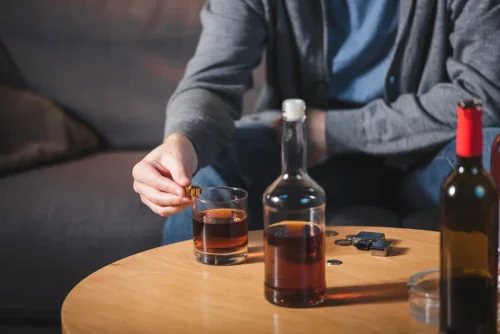
So what you’re wanting to do as part of recovery is bring in adequate energy that allows all of these processes that have been missed out upon to actually take place. This means that you’re going to need more energy than the average person. It means that when I’m looking at someone’s eating – because when I’m working with people, I will typically get them to keep an awareness log. It could be while we’re working together, we can figure out what’s best for someone. For some people, keeping an awareness log actually helps them be more accountable and leads to them being able to eat more and make more pro-recovery steps.

7 Help for Drug & Alcohol Use

One way to determine whether https://ecosoberhouse.com/ you’re ready to share your recovery story is to first speak with your mental health therapist or counselor. Explain why you want to share your journey and how you think it could make you feel. They’ll help you identify whether it might be the right time and some things to consider before sharing details of your addiction.
The Role of Meditation Retreats in Addiction Recovery
Still, it’s vital that those who want to share get an opportunity to do so. As a result, sharing your story in recovery when telling your story in AA, keep an eye on the time. Give yourself enough time to get everything off your chest, but don’t forget others need to share too. So the goal, for as long as it needs to be happening, is eating in a way that is about recovery. But the reason I’m mentioning this is I know there can be a lot of fear about this.
Individualized, evidence based treatment, to fit your needs.
Another resource includes online magazines such as the bphope by Everyday Health magazine, for which I eventually wrote an article. My engagement has been deeply meaningful, as it allows me to share my experiences and contribute to a community that provides hope and resources for others. In addition to therapy, I’ve been focusing on journaling and mood tracking as tools for managing my mental health. Writing my thoughts down is a powerful way to clear my mind and process my emotions.
How to Identify a High-Quality Addiction Treatment Center
Improving communication skills is a transformative aspect of the recovery journey. By embracing open dialogue, active listening, and empathy, individuals can rebuild relationships, strengthen their support networks, and navigate challenges with confidence and clarity. Along with fostering personal growth and accountability, these skills contribute significantly to developing a sustainable, sober lifestyle. As individuals continue to refine their communication abilities, they lay a stable foundation for lasting recovery and a renewed sense of connection and community.
- Personal narratives serve as powerful reminders that recovery is possible; they challenge societal stigmas that often misrepresent addiction as a moral failing.
- Actually, what someone’s describing as a normal eater is this very orthorexic version of what they believe or what the eating disorder believes they should be eating.
- We’ll give you skills to discover your self-worth and show you the tools for a life of hope and promise.
- Unlock the facets of substance abuse treatment plans for a successful journey to sobriety.
How to integrate family and friends into your recovery journey
Now serving as the Director of Human Resources since 2018, she leads our organization through the intricate requirements of recordkeeping, recruitment, staff development as well as compliance. It’s one of the 12 steps that every AA member needs to complete. Not only does making amends help you get over past mistakes, but it also helps repair your relationships with other people. So if life has been hard on you, yet you have managed to survive, be honest about this. You don’t have to try and tell someone else’s if you haven’t lived it. The point is that you shouldn’t worry about whether or not your life is perfect.
- This can be anything from attending 12-step meetings to working with a therapist.
- Though I haven’t yet fully embraced mood tracking, my providers believe it will help me gain a deeper understanding of my emotional patterns, which I hope will be beneficial in the long term.
- Cori’s goal is to ensure all patient’s needs are met in an accurate and timely manner.
- You should never risk your mental health or overall sobriety just to share your story.
Being prepared for such discussions can enhance the impact of your narrative. For some people, as soon as they start to eat a little more, this is when the extreme hunger starts to really pick up. Another analogy I’ll often use with this is you can have two people; let’s imagine you’ve got two people and one of those people has got into 100,000 worth of debt. On my 21st birthday, I spent the day in a hospital, receiving the life-changing diagnosis of bipolar II disorder.
Incorporating these practices improves relationship dynamics and supports the recovery journey by nurturing open dialogues and emotional connections. Utilizing techniques such as active listening, empathy, and honesty ensures that these conversations are productive. For instance, engaging in two-way dialogues not only enhances understanding but also nurtures connections within therapy sessions or support groups.

Whatever the goal, it’s still essential to understand concerns about oversharing or speaking about substance abuse in the wrong light. Keep reading for important dos and don’ts when sharing a personal recovery story. Storytelling is integrated into addiction treatment as a powerful tool that encourages self-expression and community support. In group therapy settings, sharing personal stories enhances empathy, understanding, and connection among participants, fostering a sense of belonging within the recovery community.
The connection between CBT and lasting behavior change
Narratives that convey respect for the recovery process and acknowledge setbacks as part of growth encourage others to persevere through their challenges. In essence, combining personal testimonials with uplifting insights creates a nurturing environment that supports personal development and inspires those on their recovery journey. Connecting with others through shared experiences helps reduce feelings of isolation. Furthermore, storytelling encourages empathy and understanding while breaking down the stigma surrounding addiction. In Alcoholics Anonymous this way, storytellers can advocate for a compassionate view of addiction as a complex health issue rather than a moral failing.